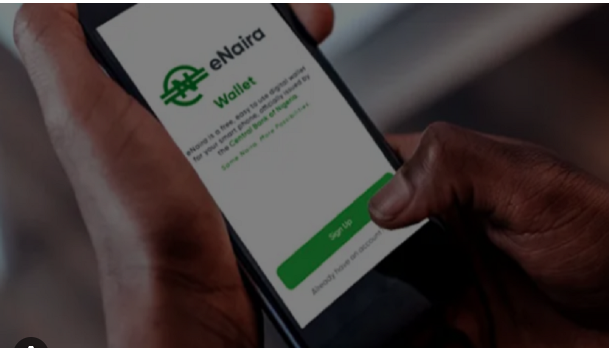The Central Bank of Nigeria (CBN) has taken a significant step in advancing its efforts to liberalize the payout of diaspora remittance with eNaira.
In a circular titled “Operational Framework for eNaira Payment Option to Recipients of Diaspora Remittances,” dated June 15, 2023, the CBN announced the introduction of its digital currency, the eNaira, as a payment alternative.
This move aims to enhance financial inclusion, reduce transaction costs, and improve payment efficiency. This article explores the guidelines and benefits of the eNaira for diaspora remittances.
Read also: CBN educates states, institutions on eNaira
Guidelines for eNaira Payment Option
To facilitate the payment of diaspora remittance proceeds to recipients who opt for the eNaira, the CBN has provided specific guidelines.
The International Money Transfer Operators (IMTOs) are required to apply for a one-time “No-Objection” from the CBN to pay out in eNaira. Additionally, the IMTOs must transfer the foreign currency to designated CBN accounts.
Importantly, the receipt of diaspora remittances in eNaira remains optional, and recipients can still choose the traditional dollar payout.
Payment Procedure
Under the eNaira framework, IMTOs are mandated to open merchant wallets through the CBN and pre-fund them with foreign currency. Subsequently, the CBN will credit the IMTO merchant wallets with the eNaira equivalent of the pre-funded foreign currency.
To initiate a diaspora transfer, the sender provides the beneficiary’s wallet details to the chosen IMTO. The IMTO then accesses the eNaira web wallet portal, debits its merchant wallet, and credits the beneficiary’s wallet with the eNaira equivalent of the foreign currency based on the I&E window rate.
Alternatively, IMTOs can integrate with the eNaira portal via API provided by the CBN for seamless transfers.
Advantages of eNaira for Diaspora Remittances
The introduction of the eNaira brings numerous benefits to the diaspora remittance ecosystem.
Firstly, it reduces the cost of financial transactions by eliminating intermediaries and associated fees.
Secondly, it enhances the efficiency of payments, enabling faster and more secure transactions.
The eNaira also aligns with the broader goal of financial inclusion by providing a convenient and accessible digital payment option for recipients. Furthermore, the initiative promotes a cashless economy and complements previous monetary policies and existing payment platforms.
eNaira and its Impact
Unveiled on October 25, 2021, by former President Muhammadu Buhari, the eNaira is a digital currency aimed at driving a more cashless, inclusive, and digital economy.
As a legal tender in Nigeria, the eNaira holds the same value as the physical Naira and can be exchanged at a rate of 1 naira to 1 eNaira.
By supporting a resilient payment system ecosystem, the eNaira encourages financial inclusion, reduces cash processing costs, facilitates welfare interventions, and improves revenue and tax collection. Moreover, it streamlines the remittance process, benefiting both senders and recipients.
Major stride towards financial innovation
The Central Bank of Nigeria’s introduction of eNaira as a digital payment option for diaspora remittances signifies a major stride towards financial innovation. The guidelines provided in the circular facilitate a smooth transition to eNaira payments, while the benefits include reduced transaction costs, enhanced payment efficiency, and increased financial inclusion. As Nigeria embraces the eNaira, it is poised to foster a more resilient, inclusive, and digitized economy, driving progress in the nation’s financial landscape.
